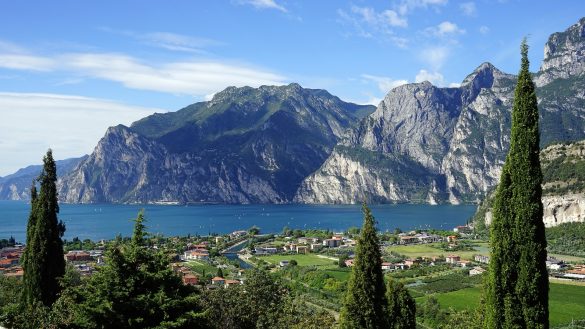The road to sustainability isn’t always easy to understand, especially for small and medium-sized enterprises (SMEs) navigating the complex world of green finance. The Lombardy Region is taking decisive steps to support its enterprises in transitioning to a more sustainable economic model. Through the Sustainable Finance Initiative, Lombardy is helping businesses understand and meet sustainability standards, such as the EU Taxonomy for Sustainable Finance.
Launched in collaboration with Finlombarda S.p.A. in 2024, the Sustainable Finance Initiative is a pilot programme designed to support Lombardy’s small and medium-sized enterprises (SMEs) in the transition to a sustainable economic model, encouraging the adoption of green financial practices and instruments.
The initiative helps businesses identify and implement sustainable investments aligned with regulations, and secure financial resources for projects that improve the company’s environmental performance.
The Sustainable Finance Initiative identifies the financing requirements necessary for transitioning to a sustainable economy, provides practical assessment tools, supports SME’s to secure sustainable investments, helping businesses understand and meet sustainability standards, such as the EU Taxonomy for Sustainable Finance.
The EU Taxonomy – a classification system that defines strict criteria for economic activities aligned with a net zero trajectory by 2050 – is a key reference, but its complexity strongly weighs on SMEs. By offering hands-on guidance and tailored tools, the initiative bridges this gap, translating technical frameworks into actionable steps for small businesses.
The Sustainable Finance Initiative was launched in 2024, when seven SMEs were chosen to take part in the pilot. Lombardy Region and Finlombarda S.p.A. have carried out a process to estimate the level of sustainability of the seven SMEs, using two ranking systems: the Environmental, social, and governance (ESG) criteria and the IMP3rove Corporate Sustainability Navigator (CSN). These assessments started productive conversations with business owners, shedding light on the areas where improvements were most needed.
From these assessments, 26 concrete actions to orient SMEs towards sustainability and sustainable finance initiatives, such as promoting investment plans for the ecological transition, creating a permanent lab to test credit access solutions for sustainable projects, and supporting investments in climate risk prevention and protection, , were identified. A clear pattern emerged: the more companies understood sustainability, the better they could identify and implement sustainable investments aligned with regulations. In other words, knowledge and action go hand in hand.
Small Businesses, Big Change
The Sustainable Finance Initiative has allowed Lombardy Region to understand the best ways to support the ecological transition, facilitating the regional policies guidance process.
The innovative way to dialogue and interact with SMEs, as a result of the involvement of local associations, has been an important “practice” for the regional system not only to improve the initiatives already in place, but to identify the actual needs that can be effectively addressed.
Encouraged by the success of the pilot, in 2025, the Lombardy Region decided to start a deeper analysis focusing on three key value chains – textiles, construction, and plastics. This next step will involve 10 to 15 companies and focus on identifying key environmental issues, where investments are needed to enhance the sustainability of the entire supply chain.
Lombardy’s Sustainable Finance Initiative stands out as a compelling example of how regional governments can lead the way in supporting SMEs towards sustainability. By promoting a culture of sustainability and identifying the financing needs essential for the transition to a sustainable economy, Lombardy is empowering its SMEs to access funding for investment projects that improve their environmental performance, affirming its role as a driving force in building a greener, more resilient future in the Lombardy region.
More information at: www.regione.lombardia.it/wps/portal/istituzionale
About #RegionsVoice: In 2019, Regions4 launched the global campaign #RegionsVoice in a collective effort to bring the voice of regional governments to the major events and negotiation processes in sustainable development within the UN. The aim of the campaign is to ensure the visibility and wider recognition of the role of regional governments in sustainable development, by elevating both individual and collective messages and engaging with a wider audience during the UN Decade of Action.







